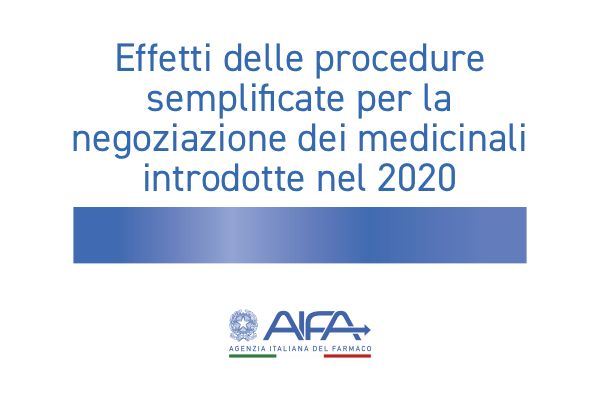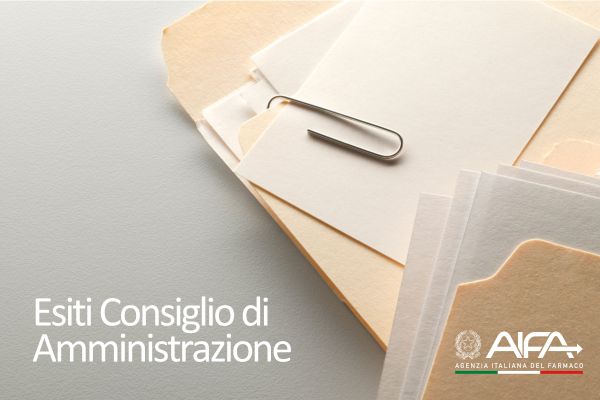.png) Agenzia Italiana del Farmaco
Agenzia Italiana del Farmaco
Impact of simplified procedures introduced in 2020 on the negotiation of medicinal products - Impact of simplified procedures introduced in 2020 on the negotiation of medicinal products
Impact of simplified procedures introduced in 2020 on the negotiation of medicinal products

Following a monitoring activity conducted by its HTA & Pharmaceutical Economy Division, the Italian Medicines Agency (AIFA) publishes the first report on the impact of simplified negotiation procedures for generics and parallel imported medicinal products, introduced in 2020 and 2021.
In October 2020, the ‘Procedura semplificata di prezzo e rimborso per i farmaci equivalenti/biosimilari (generici)’ [Simplified price and reimbursement procedure for generic/biosimilar medicines] was introduced. The impact of such procedure is the following:
- a 15% reduction in assessment time from 2020 to 2021: in 2020, 194 procedures were assessed in 150.4 days on average. In 2021, 255 procedures were assessed in 128.3 days on average;
- a positive response from pharmaceutical companies to the introduction of the new simplified procedure, which was preferred over the regulated ordinary procedure: in 2021, 89% of procedures concerning generics were conducted in accordance with this simplified negotiation;
- a 31% increase in negotiation procedures concerning generics compared to 2020.
In March 2021, the ‘Procedura semplificata di negoziazione del prezzo e di rimborso dei farmaci di importazione parallela’ [Simplified price and reimbursement procedure for parallel imported medicines] was introduced. This reopened the market for parallel imports of medicinal products and allowed 111 simplified procedures to be assessed in 47 days on average.
The introduction of the two new simplified procedures has also had a positive impact on the National Health System, for the following reasons:
- the reduction in approval times immediately translates into an economic advantage for the National Health System;
- the reduction in negotiation times has allowed an increase in the availability of medicines in each therapeutic area, thus fostering greater competition;
- the presence of parallel imported medicines is also an opportunity for reducing the quota of costs borne by citizens.
Published on: 22 April 2022

